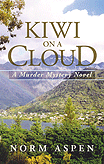
The idea that traditional publishing is the only respectable way to get that highly coveted achievement as a writer is but a thing of the past. Many aspiring authors keep dreaming, while some give up trying.
Of course, there is always self-publishing. While many think of this to be a rather poor alternative, a last resort among those who couldn't push any more luck with traditional publishers. However, it has slowly proven itself to be a smarter option for authors.
The flak against self-publishing may still prevail especially among the orthodox thinking, but more people are getting more discerning nowadays. Little by little, self-publishing has gained the respect it deserves and many have seen the benefits it provides.
Thanks to Print 0n Demand (POD) technology, where publishing a book no longer poses too much a gamble for the publisher - YOU. Perhaps the still-skeptics should stop and learn just how beneficial POD publishing can be.
Print on Demand has, in fact , changed the face of publishing today. This doesn't come as a surprise why, when all else fails, a smart author chooses POD. There are two main reasons:
CONTROL. Print on Demand allows you full control of your book. After all, it is your work. You cannot have the same privilege as when you sell your manuscript to a traditional publisher. This extends to controlling the number of books you want to have printed. Especially for those who simply want to do so for their friends or family to enjoy, making POD a smarter choice.
Also, if your traditionally published book does not sell, they have all the right to stop publishing your book and drop you off just like a hot potato. On the other hand, Print on Demand allows your title to never go out of print. Only you have the control to stop selling it.
PROFIT. Standard self-publishing instills hefty financial investment in inventory and yet leave you to do all the work in terms of distribution and promotion. Such is not the case for Print on Demand. With a reasonable investment, you can now have your title published.
Moreover, you save yourself from all that stress as they take care of your book's marketing and distribution too. POD publishers also pay you higher royalties for every copy sold compared to traditional publishers.
Publish your book today and enjoy great discounts on publishing services. Receive your FREE book publishing guide.





